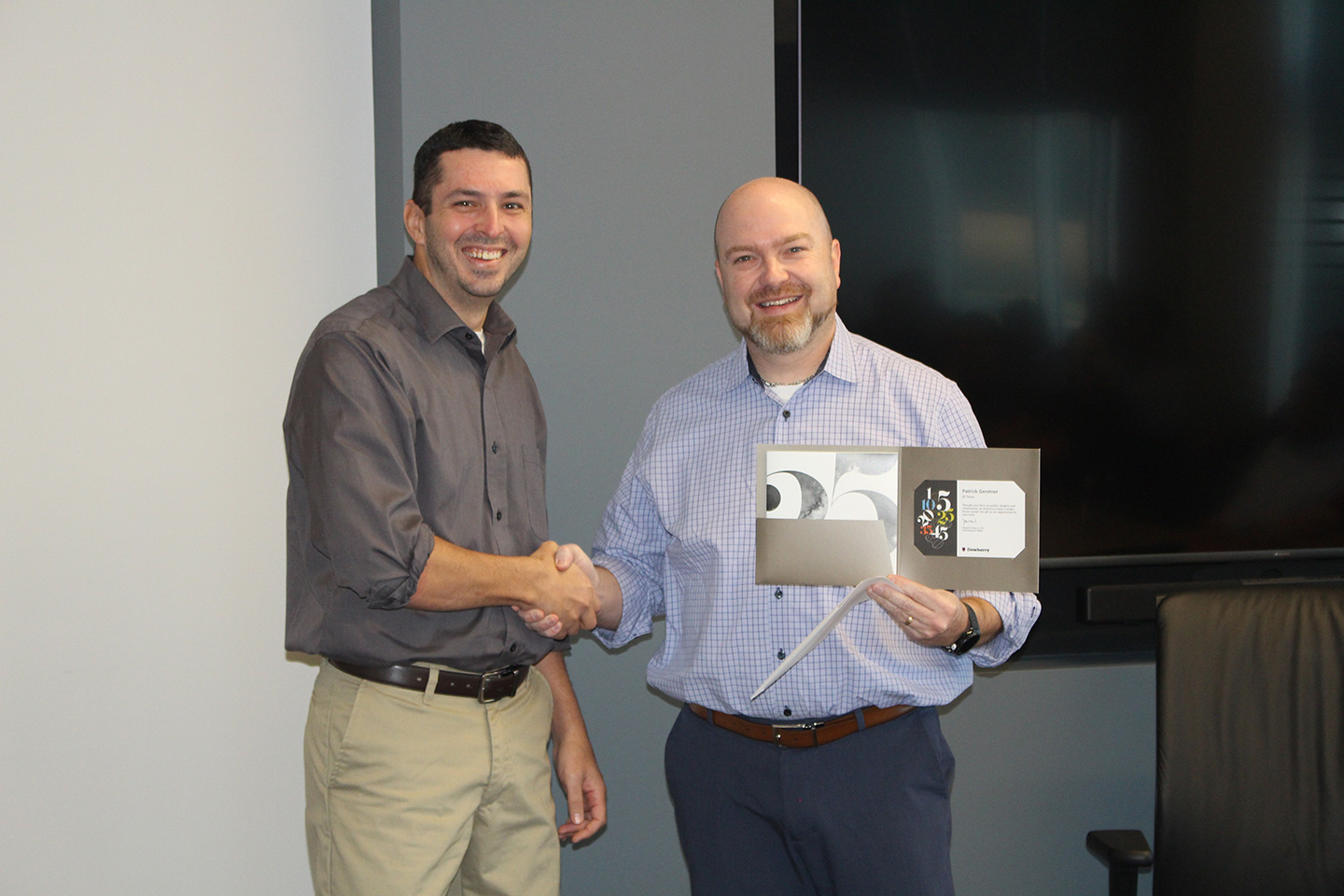Dear Engineers,
When I was asked by our Mechanicsburg, Pennsylvania, Emerging Professionals to speak to the office about what I would tell my 25-year-old self, I had a lot to reflect on. In my 28 years at Dewberry, I’ve learned a lot, much of which I think still
applies to young engineers today.
My Dewberry Story
I was first hired at Dewberry in 1993, fresh from graduating from Virginia Tech with a bachelor’s degree in civil engineering. By the time I was 25, I was working as a project engineer, but was also responsible for assisting with a lot of IT and
planning committee needs in our Pennsylvania office due to our relatively small size at the time, which provided me with some versatility and taught me some long-lasting lessons. I also had the fortune of getting involved as an assistant project manager
on three highway intersection projects early on for the Pennsylvania Department of Transportation, which helped grow my engineering skills and taught me valuable lessons about working in a project team environment.

10 Pieces of Advice for Young Engineers
Those lessons have only grown over the last 28 years, and I wanted to take that knowledge and pass it on to the next generation of engineers. Here are 10 of the most critical pieces of advice I would give:
- Always carry a pencil and tablet when you meet someone.
This originally came from the head of the highway group when I first started at our Dillsburg, Pennsylvania, office, who told me to have a tablet for every project. I’ve carried this piece of advice with me on to my role as an associate vice
president. I always suggest to new interns and entry-level recruits to bring a pen and paper when going into meetings. I find this helps when wanting to look back on the key takeaways from the meeting as well as any actionable items I will need
to work on. Trying to digest and memorize everything in a meeting is very challenging, so a few notes can make a big difference.
- Look for the answer before asking the question.
When I had first started at Dewberry, I remember getting one of my annual reviews back, and my boss told me that I needed to start bringing solutions to the table instead of coming to her and asking for the answer. As an engineer, you’re supposed
to be trained to think for yourself, so consider what resources you have at your disposal, whether it be online or in past project documentation, before going to your supervisor.
- Find the right answer, not the easiest.
Some individuals might shop around for the answer they thought was right. As engineers, you need to be looking for the correct solution, not the solution you want to hear or the easiest one. We have ethical standards to uphold.
- Get involved in professional organizations.
I suggest getting involved in professional organizations early on in your career. These professional societies offer additional sources of learning in different engineering disciplines and networking opportunities, allowing members to tap into
the latest trends and technologies. It can also help you prepare for your Professional Engineer (PE) exam, as you can network with engineers who have already passed it. I am a member of both the American Society of Civil Engineers (ASCE) and
the American Society of Highway Engineers (ASHE), both of which I have found beneficial.
- Get to know others at the same level as you.
It is important to get to know and hold respect for your colleagues. Each individual brings unique qualities and capabilities to the table; and who knows, maybe you will both be decision makers and that relationship you have fostered over the
years will be beneficial for both of you.
- Start to track your projects in preparation for your PE application.
Start your PE exam prep early! Talking to those who’ve passed their PE exam will be the most beneficial, as most engineers will gladly pass along their experience and guidance to you. While preparing, start tracking what projects you are
working on. This information will make the process of adding engineering experience to your PE application less painful.
- Pay attention to things on a project even if you aren’t working on them, as this will help when you are managing the entire project.
As a highway engineer, I don’t do any of the structural design work. However, I’ve made efforts to get to know all the design aspects of a project in order to be an effective project manager.
- Follow through with the commitments you make.
As engineers, we need to make sure that we hit our deadlines. When we don’t hit the deadlines that we’ve agreed to with clients, it can mess up our schedule and budgets, but it also affects our clients and how they operate. One example
of this was when I told a project manager that I’d try to get my submission in by Friday, and her response to me was that there’s no trying, you’re either going to do it, or you’re not going to do it.
- Take time to stay informed of innovation by reading news articles, industry publications, or searching the web.
I would recommend keeping informed of ideas that could provide opportunities or have an impact on your work. Read publications such as your local newspaper to keep abreast of local projects, politics, etc. This information may be useful for your
projects or projects you pursue. Other industry publications that I read include those by American Council of Engineering Companies (ACEC), ASHE, ASCE, and other highway-related ones. In addition, searching the web can help find new and innovative
ideas that may be useful for your projects.
- Figure out what is important and relevant to you and focus on those things.
I’ve found what’s important to me currently is identifying things that will hopefully leave the office better than when I started and to help my staff improve themselves and to be prepared to take on even more challenging projects as they
advance in their careers.
 Here I am pictured on the right receiving my 25-year Service Award at Dewberry from Curtis Sanno.
Here I am pictured on the right receiving my 25-year Service Award at Dewberry from Curtis Sanno.
To all the 25-year-old engineers out there, I hope you take a moment to consider my advice, as there’s a lot that I wish I had known when I was 25. Now go out there and pass your PE exam!
Best,
Patrick Gerstner, PE